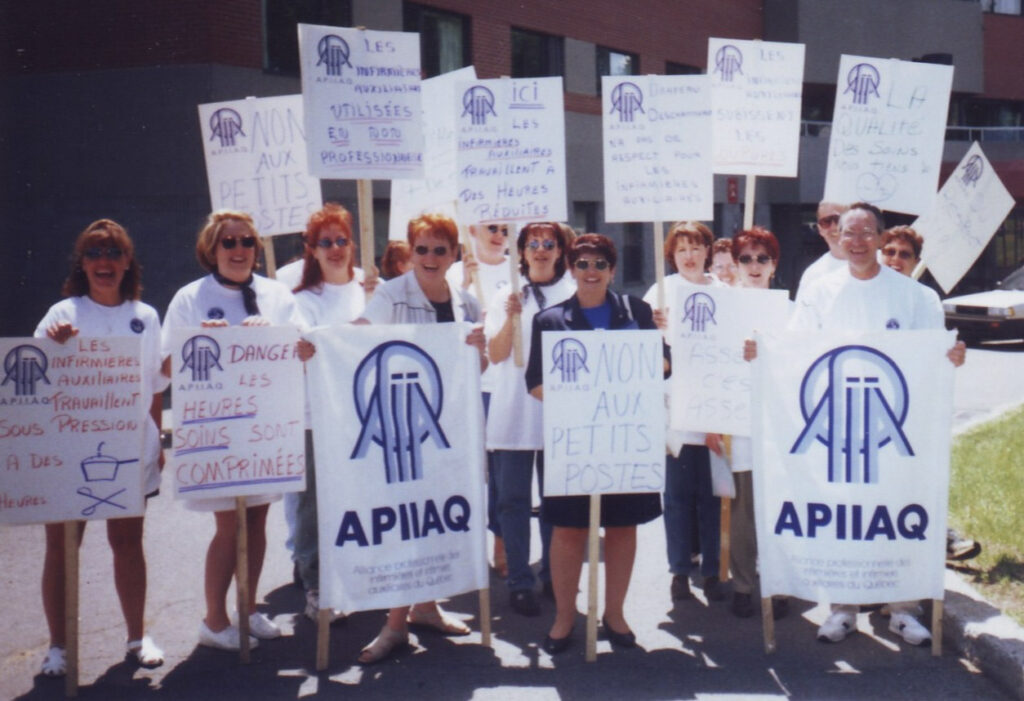75 years of the licensed practical nurse profession
This article was published in the first edition of La Résonance magazine.
The FIQ is proud to celebrate the 75th anniversary of the licensed practical nurse profession. Licensed practical nurses work in multiple settings and can provide a wide range of care, from helping assess a patient’s health, administering certain medication and vaccines, and providing wound-related care.
On September 4, 1950, inspired by the practical nurses’ model in the United States, Charlotte Tassé opened a first practical nursing school at the Institut Albert-Prévost de Montréal. The training was vocationally oriented, and the institute’s motto was ‘forget yourself to bring relief to others.’ The creation of the title reserved for licensed practical nurses by the Quebec Professional Code in 1973 marked a turning point in the professionalization of the role and expertise.

Despite this progress, there are still recognition challenges. In 1997, the government was even planning to get rid of the profession completely, but it backed off following significant mobilization by licensed practical nurses and the public.
It was in 2003, with the passing of the Act to amend the Professional Code and other legislative provisions as regards the health sector (Bill 90), that the role of licensed practical nurses received more recognition and value on interdisciplinary care teams. Thereafter, professional activities were reserved for them.
FIQ delegates elected Julie Bouchard in 2021. She is the first president who was a professional licensed practical nurse. Her election bears witness to the increasingly significant place of licensed practical nurse voices in the health network, as well as to their leadership and essential expertise in defending the working and practice conditions of healthcare professionals.
The licensed practical nurse profession has greatly evolved over 75 years. Despite all this progress, there is still a lot to do to raise awareness about their contribution, to enable them to exercise their full scope of practice, and to promote their integration into all care settings.

